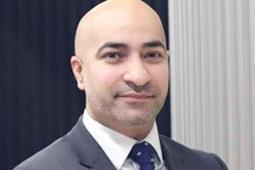One of the significant changes from Covid is the ongoing rise of virtual law firms and employed solicitors working predominantly from home.

A point which is likely to become more of an issue in the future is the extent to which the place of work of the solicitor affects the amount they can recover on assessment.
Solicitors claim their costs on an hourly rate based on their expertise, which must be of the right level for the case in question, along with other things including their location. London solicitors command higher rates because of the location of their office.
The courts’ Guide to the Summary Assessment of Costs states in paragraph 31 that: 'Where all or part of the work on a case is done in a different location from that of the solicitor’s office on the court record, the appropriate hourly rate for that part should reflect the rates allowed for work in that location, whether that rate is lower or higher (provided that, if a higher rate is claimed, a decision to instruct solicitors in that location would have been reasonable). The location of a fee earner doing the work is determined by reference to the office to which s/he is, or is predominantly, attached.'
However, with working from home and the rise of virtual law firms becoming more and more popular, there may be scope in the future to argue about costs of fee earners who are working from home seeking to claim London rates.
While the fee earner in question may be attached to a London office, paying parties may have a legitimate point of dispute if they are asked to pay London hourly rates where the fee earner in question rarely or never visits the London office.
A report on guideline hourly rates carried out by the Civil Justice Council and published in April 2021 noted that traditional zoning may need to be reviewed in the future in the light of home working. However, Section G, paragraph 7.3 of the report stated that 'the working group does not accept that now is the right time to consider any effect of home working'.
The matter has been commented on further in the case of Otto & Ors v Inner Mongolia Happy Lamb Catering Management Company Ltd & Ors where the judge considered the issue of home working. After consideration, the judge commented: 'there are no solicitors’ firms in this country of any size that carry on a “virtual practice”, with each of many fee earners working solely from home (or a rented “hot desk” nearby) and with no central base. As and when such firms become established, no doubt there will be evidence adduced to show what the overheads are and how the chargeable costs are made up.'
In light of the above, it seems likely that home working will be the subject of further review in future and the court has a wide discretion on costs.
If paying parties wish to object to the hourly rate charged, they will need to try and establish where the work was carried out and whether the fee earner utilises London facilities. If they can show that a fee earner is not predominantly attached to a London office, the time may come when the court may consider it unreasonable for London rates to be charged although there are a number of other factors that are considered by the court when assessing costs.
On assessment, questions will likely be raised going forward on where the work was carried out and changes may be made to costs forms. For example, Form N260 could be updated to ask the question of where the fee earners were working from but this could make assessments and especially summary assessment far more complicated where fee earners are working on a hybrid basis, i.e. half from home and half at the office.
For the moment it seems that the court will predominantly focus on the location of the solicitor’s office as opposed to the specific location of the individual, but the question the legal industry will have to consider is whether the amount of their fees can be still be justified irrespective of where the work was carried out.
Dipesh Dosani is partner at Lincoln & Rowe, London
































1 Reader's comment